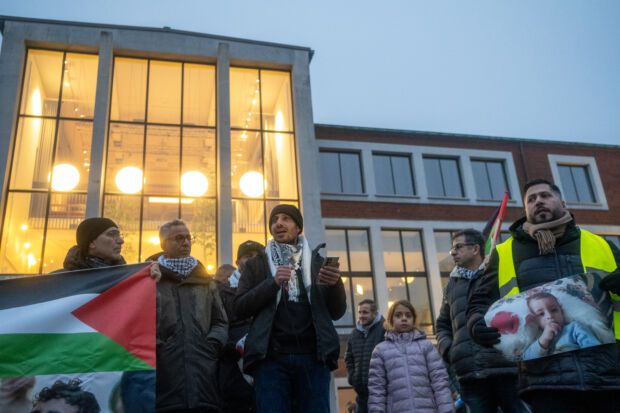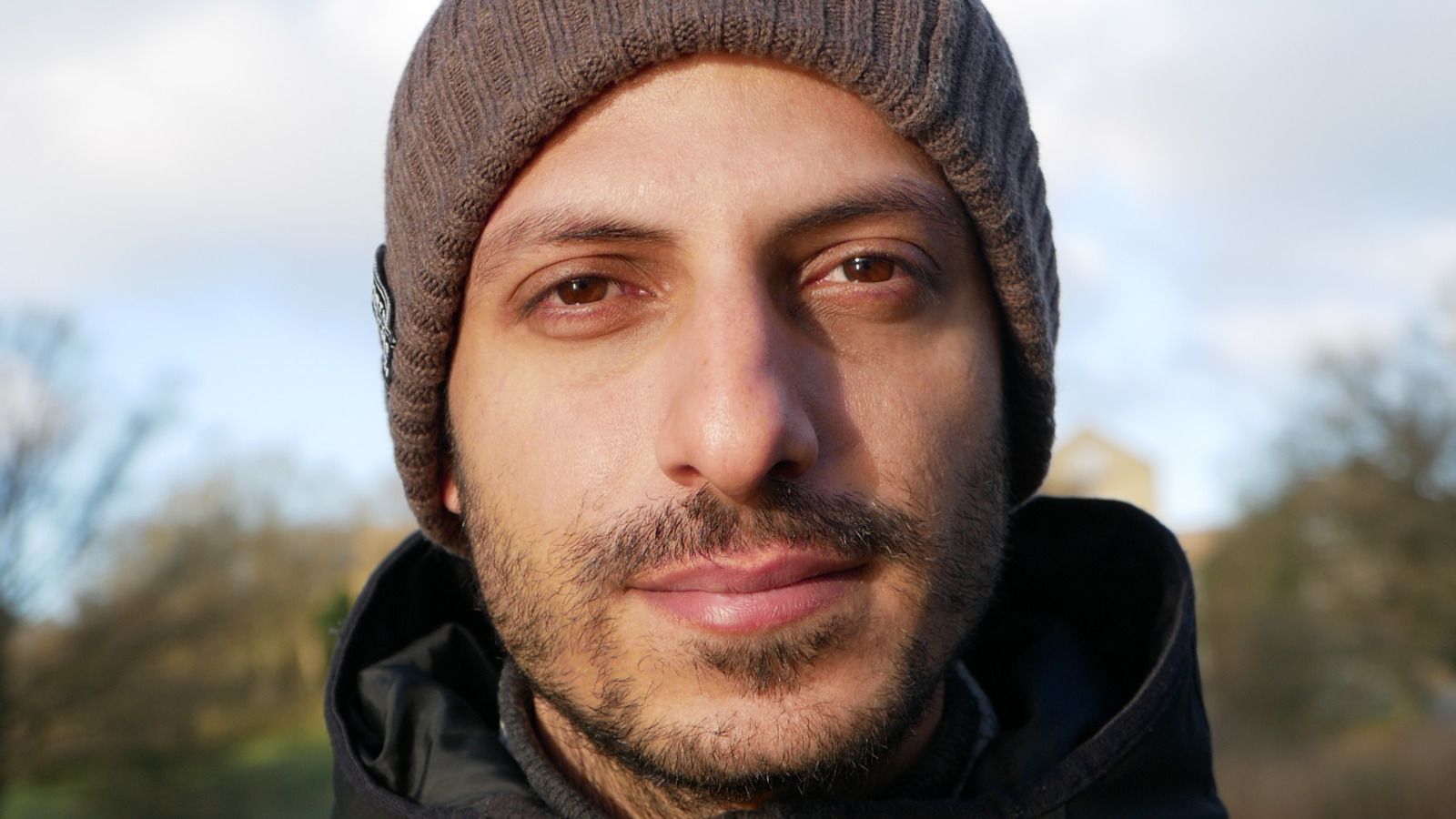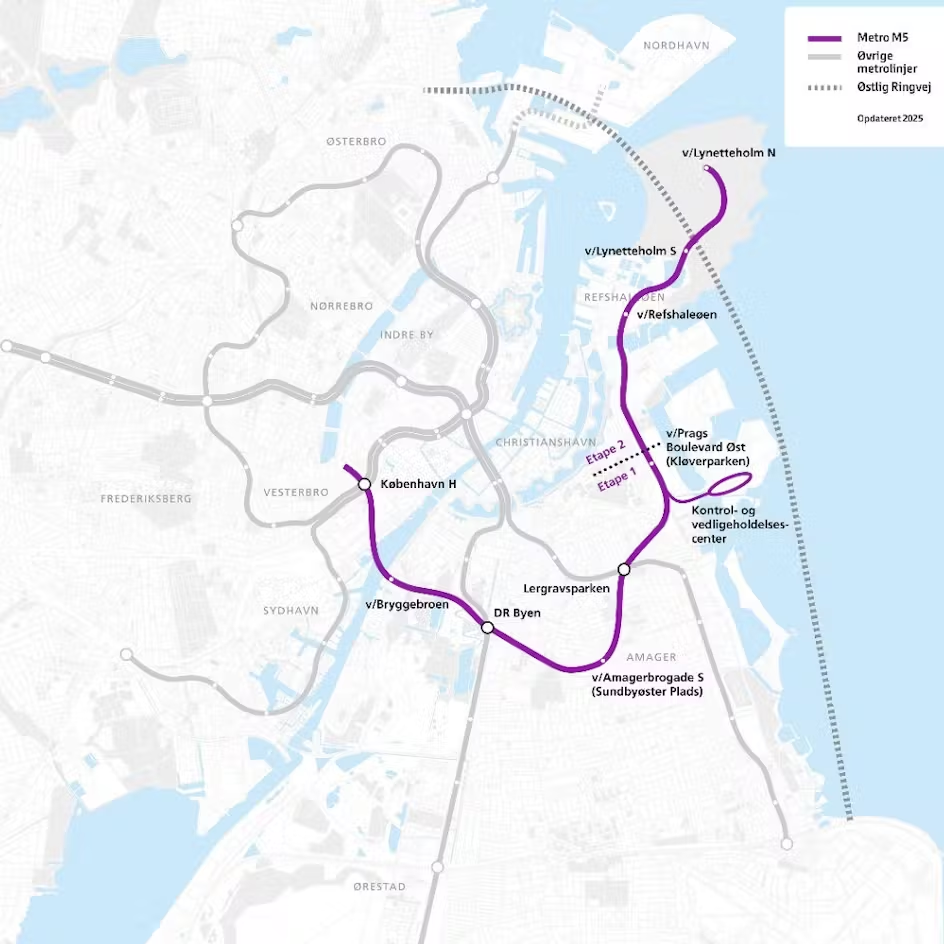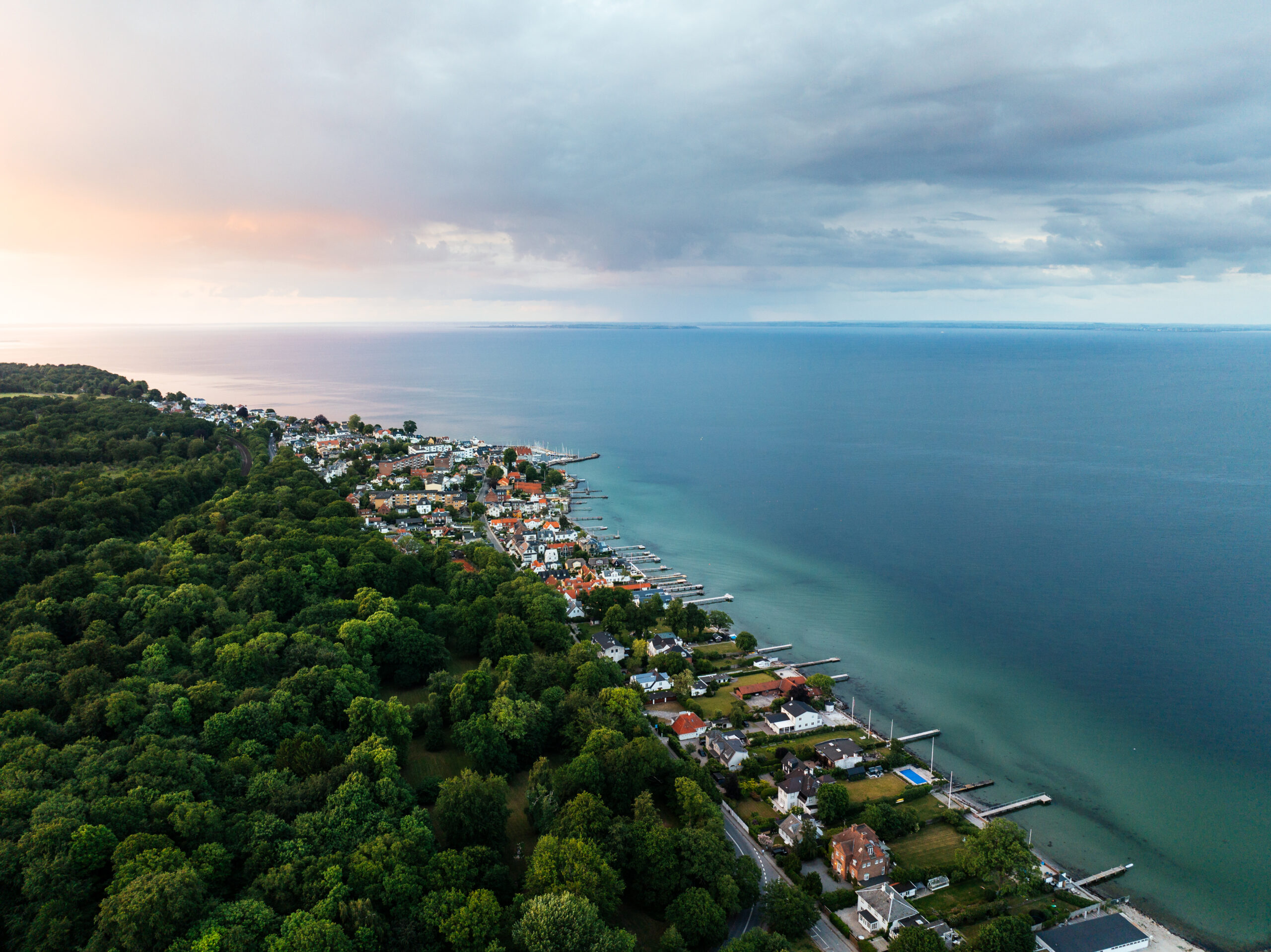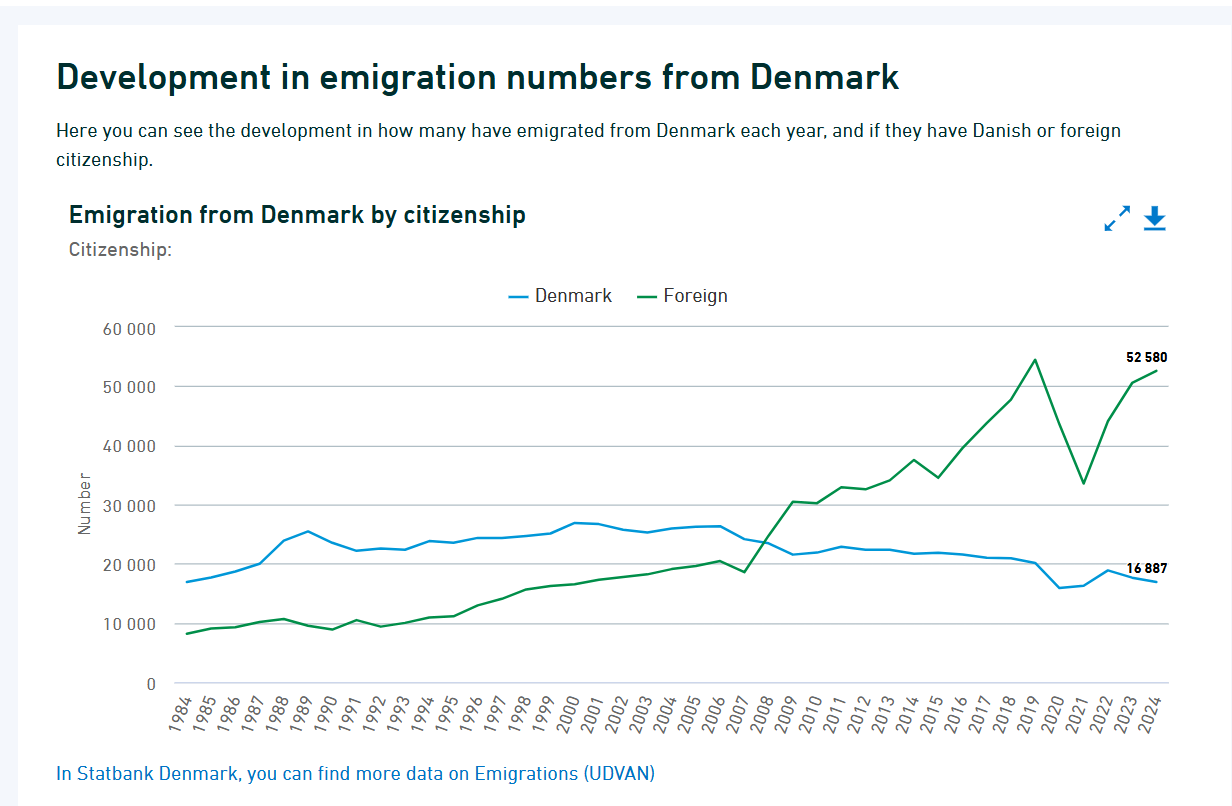“We have two options now: dying or dying.”
This was a text from a Palestinian boy to his elder brother, Salahaldin Eleyan – alias Salah, who is pursuing higher education in a different country.
27-year-old Salah is studying a Master’s in Quantum Physics at Denmark’s Aarhus University. But in addition to managing the same academic responsibilities as any other student, he struggles with the constant uncertainty of his family’s well-being in Gaza.
It has been an agonizing five months for the people of Palestine since the conflict in their land resumed. And the damage has spread: in Salah’s case, and for many others, the pain is crossing borders.
“War in home countries impacts individuals who have fled,” stressed Dawn Chatty, Professor of Anthropology and Forced Migration at the University of Oxford.
“This is a significant issue as those who have managed to flee are often plagued with a sense of guilt for those who have been left behind. They suffer not only nightmares reliving the violence they have witnessed before they fled but also imagining worse happening to those left behind.”
“In this day and age of immediate reporting and social media, it is very difficult to move away from being fixated on the news and other social media reports. This all leads to depression and deep anxiety for the future,” she added.
The vastness of the destruction in Gaza may be inconceivable to those living thousands of kilometres away from Palestine, but there are people who, despite the distance, live firsthand the complex situation that has been unleashed in the Middle East.
Those are the Palestinians who, for various reasons, left their homeland before 7 October without imagining what would befall their families.
“The Gaza War, as it is called, has deep impact for Israelis who feel a threat to their existence. Although some have likened the October 7 attack to a prison break-out, for Israelis, their sense of security has been irrevocably shattered,” said Chatty.
“While for Gazans, there is a real sense of genocide taking place, an ethnic cleansing of the territory of the Gaza Strip, and a ‘domicide’ (the deliberate destruction of a home or homes) creating a cratered wasteland that no Gazans can return to. For Palestinians from Gaza who have a family now under Israeli bombardment, this is a terrifying situation,” she continued.
With all that on his shoulders, and between failed phone calls to his parents, not knowing the whereabouts of the people he once laughed and cried with in Gaza, and nerve-wracking news headlines, Salah is still trying to thrive as one of Aarhus’ thousands of university students.
War and mental health
According to research by the US National Library of Medicine, the prevalence rates of anxiety, depression, and PTSD is two- to three-fold higher amongst people exposed to armed conflict compared to those who had not been exposed.
While modern technology allows regular contact, Chatty points out that it also leaves little to the imagination.
“Our TV screens and iPhones are bombarded with evidence of war crimes, and indiscriminate shelling of civilians by Israeli military forces. We are seeing schools, bakeries, and UN shelters come under attack from Israeli munitions. These are terrifying to watch. It means there is no safety anywhere and civilians are paying the price,” she said.
A nearly two-decade-long study by Middle East Current Psychiatry (MECP) has concluded that trauma and post-traumatic stress disorder (PTSD) are “a common occurrence” among Palestinian refugees.
“Inevitably, those who are viewing events from the safety of a country like Denmark will become depressed and anxious. They need support from the community around them – whether that be simply company or active protest for a ceasefire, or fundraising to send out relief supplies,” Chatty continued.
Although Salah, who left Gaza before October 7, does not technically fall into the refugee category, trying to keep his composure in the face of almost non-existent communication with his family while pursuing his studies is taking its toll.
Through the lens: Salah’s days in Aarhus
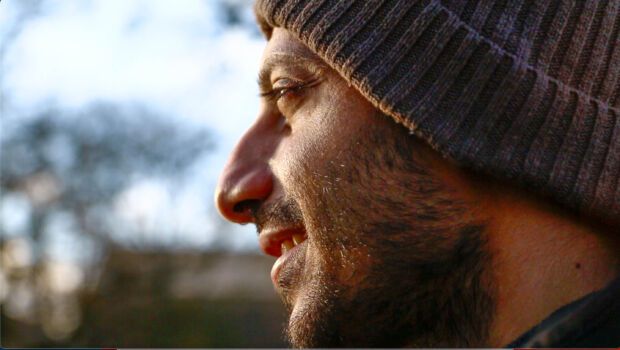
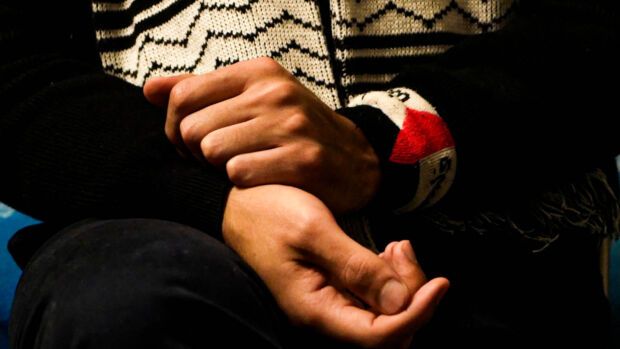

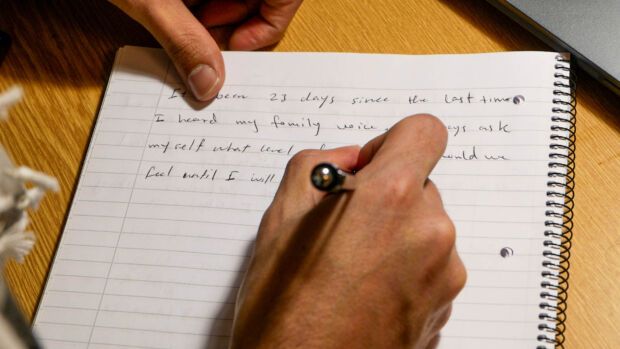
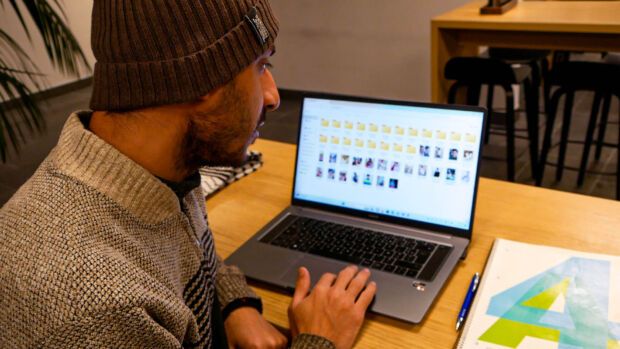
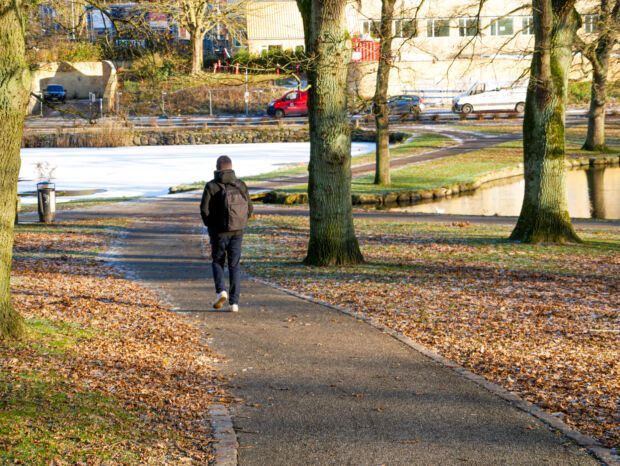
Finding balance: study and trauma
During his lectures at Aarhus University, Salah found himself grappling with a persistent challenge: maintaining focus amid a whirlwind of distracting thoughts. He referred to the constant worry about his family’s situation back in Gaza and described the difficulty in maintaining balance in his life.
According to Chatty, the trauma caused by the conflict can be chronic and enduring – exacerbating the challenges refugees and expats can face in achieving a normal life.
In 2014, more than 2,300 Palestinians were killed in clashes with Israel. In 2023, the number of deaths was 7.5 times higher, and 100 times higher than the average number of casualties each year over the last 15 years.
These numbers represent real people, families torn apart, dreams shattered, and futures lost.
Videos of the bombardments and raids on the Gaza Strip are widespread in different global media outlets, with many documenting casualties of Palestinian children, who account for 44 percent of the total reported casualties.
After almost half a year of conflict, the lack of food supplied in Gaza is significantly impacting citizens, especially in the northern part of the strip. Salah relates how people are passing out in search of food and that having one meal a day is considered a privilege.
It is difficult to measure the long-term effect that Palestinians will endure, both mentally and physically, because of the precarious and unhealthy conditions they currently face.
On being an international student while enduring war
Alongside all the difficulties associated with being an international student and living away from home, Salah faces the constant uncertainty of his family’s well-being.
But this did not stop him from becoming a well-known activist in Aarhus, and making his voice heard in support of the millions of Palestinians whose plight he is deeply connected to. Salah can regularly be seen joining the pro-Palestinian demonstrations in Aarhus.
Pondering the profound impact of the conflict, and how he can contribute to making a difference, Salah says:
“Hope comes from the close community I surround myself with here in Aarhus. Talking to people is magical, especially when you think life is over.”
